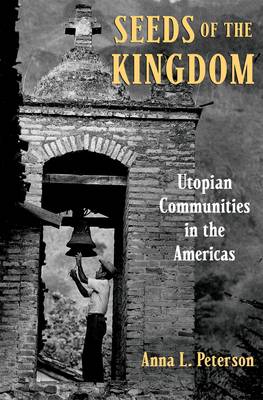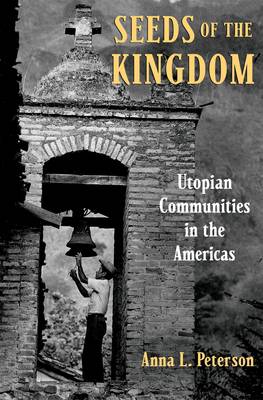
- Afhalen na 1 uur in een winkel met voorraad
- Gratis thuislevering in België vanaf € 30
- Ruim aanbod met 7 miljoen producten
- Afhalen na 1 uur in een winkel met voorraad
- Gratis thuislevering in België vanaf € 30
- Ruim aanbod met 7 miljoen producten
Zoeken
€ 132,45
+ 264 punten
Omschrijving
In these skeptical and disillusioned times, there are still groups of people scattered throughout the world who are trying to live out utopian dreams. These communities challenge the inevitability and morality of dominant political and economic models. By putting utopian religious ethics into practice, they attest to the real possibility of social alternatives. In Seeds of the Kingdom, Anna L. Peterson reflects on the experiences of two very different communities, one inhabited by impoverished former refugees in the mountains of El Salvador and the other by Amish farmers in the Midwestern U.S. What makes these groups stand out among advocates of environmental protection, political justice, and sustainable development is their religious orientation. They aim, without apology, to embody the reign of God on earth. The Salvadoran community is grounded in Roman Catholic social thought, while the Amish adhere to Anabaptist tradition. Peterson offers a detailed portrait of these communities' history, social organization, religious life, environmental values, and agricultural practices. She discovers both practical and ideological commonalities in these two comparatively successful and sustainable communities, including a strong collective identity, deep attachment to local landscapes, a desire to preserve non-human as well as human lives, and, perhaps unexpectedly, a utopian horizon that provides both goals and the hope of reaching them. By examining the process by which people struggle to live according to a transcendent value system, she sheds light on both the actual and the potential place of religion in public life. Peterson argues that the Amish and Salvadoran communities, geographically and culturally removed from the industrialized West, have relevance for the political and environmental problems of the developed world. These communities have succeeded in the face of significant internal and external challenges, offering important practical and theoretical lessons on how to achieve ecological sustainability and social justice in the wider world.
Specificaties
Betrokkenen
- Auteur(s):
- Uitgeverij:
Inhoud
- Aantal bladzijden:
- 198
- Taal:
- Engels
Eigenschappen
- Productcode (EAN):
- 9780195183337
- Verschijningsdatum:
- 17/11/2005
- Uitvoering:
- Hardcover
- Formaat:
- Genaaid
- Afmetingen:
- 156 mm x 234 mm
- Gewicht:
- 462 g

Alleen bij Standaard Boekhandel
+ 264 punten op je klantenkaart van Standaard Boekhandel
Beoordelingen
We publiceren alleen reviews die voldoen aan de voorwaarden voor reviews. Bekijk onze voorwaarden voor reviews.











